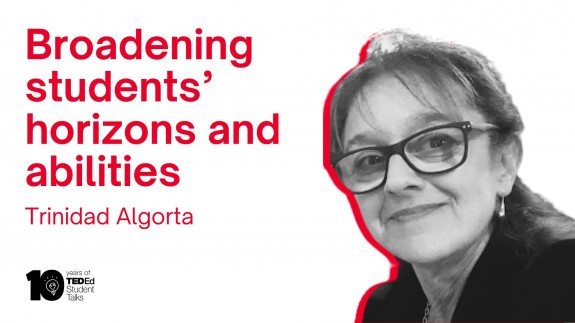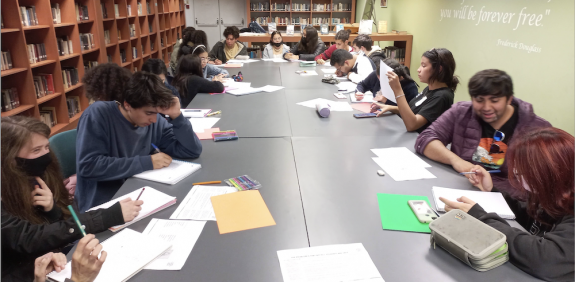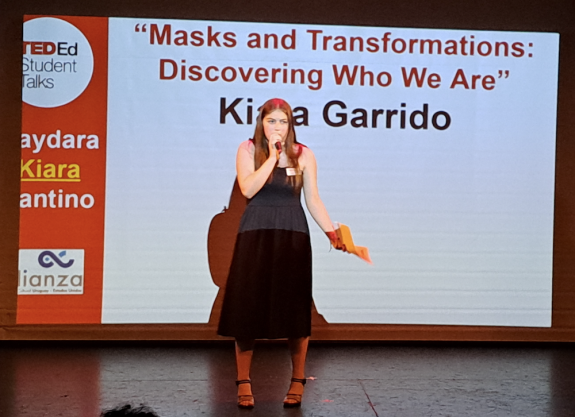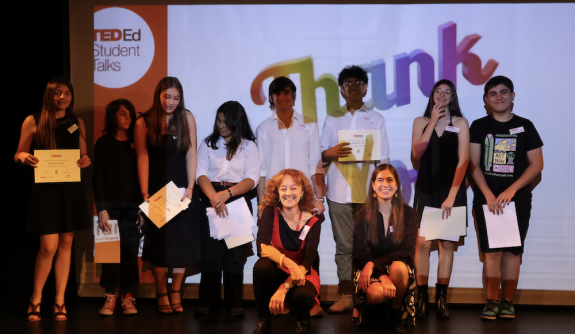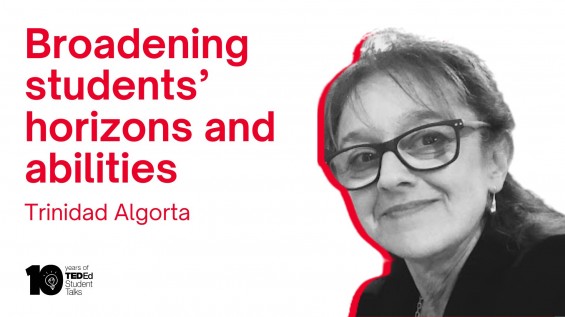
Broadening students’ horizons and abilities: A conversation with Trinidad Algorta
Since 2014, thousands of student groups across the globe have been developing and sharing their ideas using our free TED-Ed Student Talks resources. To celebrate 10 years of TED-Ed Student Talks, we have been collecting stories of impact from the program’s facilitators as part of our “10 for 10 years” series.
For this installment of the series, we are highlighting Trinidad Algorta, an ESL teacher at a cultural institution in Uruguay.
Here, she speaks with TED-Ed’s Programs Manager, Sasha Rudenko, about incorporating the Student Talks program into an ESL curriculum, the impact it has had on her students, and what advice she has for other ESL educators.
Sasha Rudenko (SR): Tell us about the organization you work for, your role, and the students you work with.
Trinidad Algorta (TA): I am an English as a Foreign Language teacher at the cultural institution Alianza. It’s a bi-national center between the United States and Uruguay where we teach English, along with other subjects. I discovered TED-Ed the same year I had a group of teens from a program supported by the US Embassy and Department of State — they were students from public schools and different NGOs all coming for two years to learn English.
SR: How did you implement the Student Talks program? How did it fit into what you were already doing at Alianza?
TA: We were looking for something different to do with our students, and I looked at TED-Ed to create some activities for our courses and came across Student Talks. We incorporated it into our English classes. We had classes twice a week for two and a half hours, which gave us enough time to continue with our usual syllabus and still have time, about an hour once a week, to devote to the program.
“It can be hard because some students don’t feel like they are able to do it. But if they persevere, they’ll find they absolutely can do it.”
SR: If you were to think back and pick a standout moment from your time leading TED-Ed Student Talks, what would you highlight?
TA: The best moment was the event. It was awesome. I really didn’t expect as much as they did, and they surprised me. A challenging part that I remember— that was great at the same time— was when they had to choose their idea. They came up with a lot of ideas, but when they were trying to translate those ideas into a talk, it became more difficult. Some students were connected with their feelings, their interior, and their experiences. But it was hard for them to translate those feelings into a story that they were going to share with everyone. But they learned how to connect those parts and worked together as a group very well. And I was also able to connect with them, so it was a special group.
SR: So, it was challenging to translate their experiences and emotions into talks. What helped them? Was it the collaboration they had within the group?
TA: Yes, collaboration among them. Also, I relied on the Facilitator’s Guide [in the Student Talks materials] for questions to ask students when they got stuck or needed help moving forward, and that helped a lot. There were many ideas the students would say but not give them any importance, and I would tell them “but that’s your story.” And that surprised them, and they began coming up with great stories from those “not important” ideas. Half of the group were immigrants, and so many of them talked about something that happened when they came to Uruguay as it was a very important part of their lives.
SR: What skills have you observed improving the most as your students go through the Student Talks activities and events?
TA: First is speaking— English speaking. Second, their body language from standing in front of an audience and performing their speech. Third, they improved their ability to write. It’s a skill they can use in their other courses, as writing a script for a talk is similar to writing an essay. For example, how to structure writing, creating a good hook to capture a reader’s attention. All those things. And I don’t think they realized how much they were learning until they reached more advanced courses and are profiting there from this experience.
“They improved their ability to write. It’s a skill they can use in their other courses, as writing a script for a talk is similar to writing an essay.”
SR: What advice would you share with someone considering being a Student Talks facilitator?
TA: I think the most important thing is to connect with the students. Connect with them and also connect them with their partners, because there’s a lot of group work and they support each other even though the talks are individual. Another thing is don’t give up. Sometimes it can be hard because the students don’t feel like they are able to do it. But if they persevere, they’ll find they absolutely can do it and feel proud of themselves. Last year, I had a student who told me, “Okay, I can give a TED Talk in front of an audience if I don’t know anybody there. So I won’t tell my parents.” And I told him, “No, come on. Your parents must be here.” And now he’s asking me if we are going to have TED Talks this year — he wants to do it again.
Interested in learning more about TED-Ed Student Talks? Check out our Student Talks page here to find out how the program works and how you can get involved.
Check out the other pieces in the 10 for 10 years series here.
